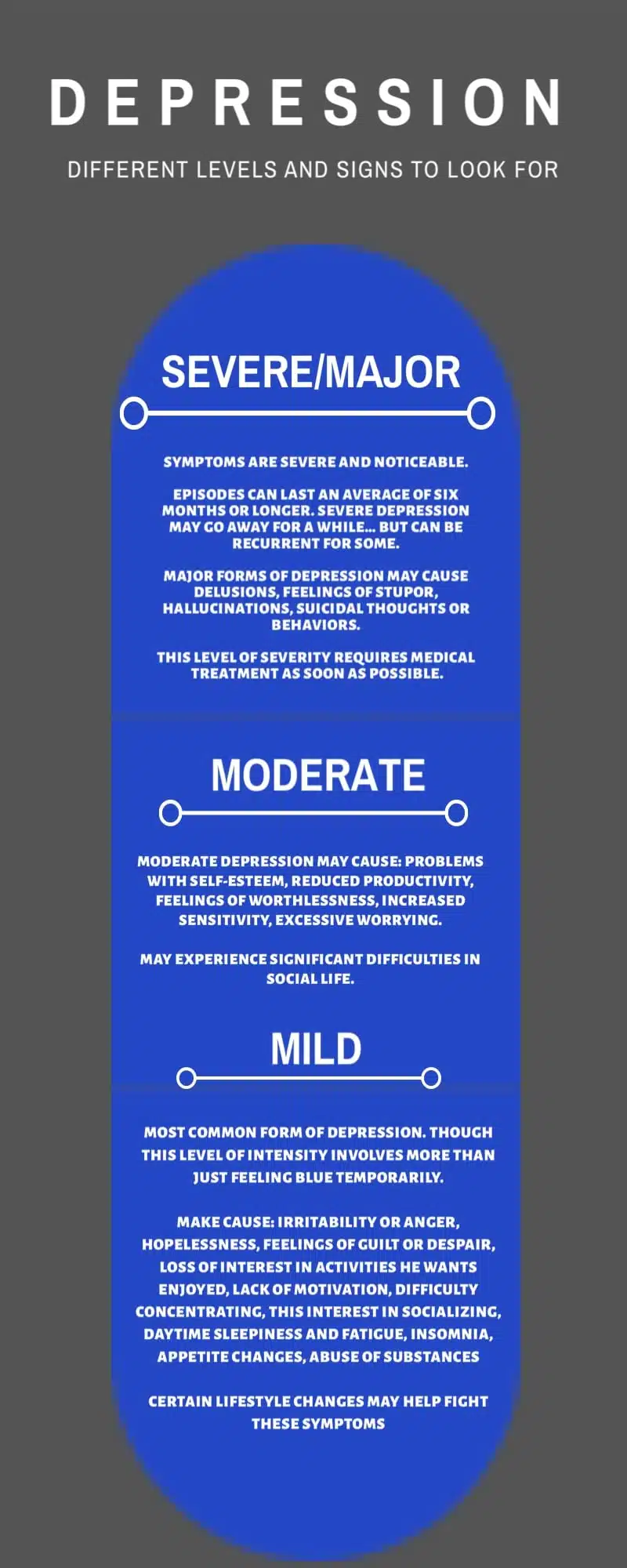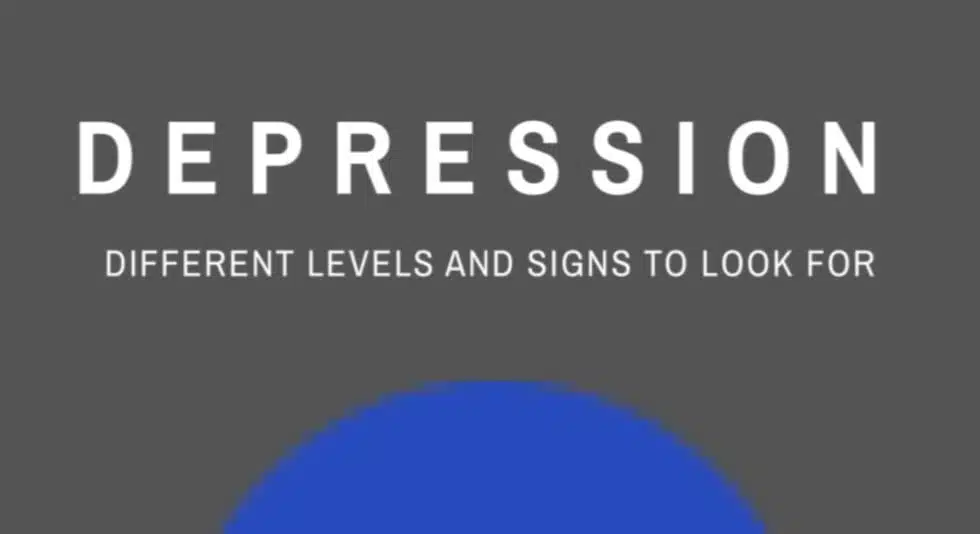Holiday Depression
Some people know all too well how the holidays seem to make the symptoms of anxiety, depression, and grief even more difficult to cope with. Some people may not feel this same struggle, but chances are that they have friends, co-workers, and family members joining them for Thanksgiving and Christmas who appear to be doing well on the outside but the internal battle may be raging.
Over the next three blogs, we are going to talk about how to spot different degrees of some common symptoms of anxiety , depression, and grief. We will also give you some quick ideas about what you can do to help. If you are reading this and are currently suffering with these symptoms, we hope that this will give you some insight about how to cope and maybe even find language to express some of the needs/boundaries that you might have so that others might better support and comfort you.
Research tells us that 1 out of 4 people directly experience an ongoing debilitating mental health disorder, that affects their daily life functioning.
“One in four people in the world will be affected by mental or neurological disorders at some point in their lives. Around 450 million people currently suffer from such conditions, placing mental disorders among the leading causes of ill-health and disability worldwide.
Treatments are available, but nearly two-thirds of people with a known mental disorder never seek help from a health professional. Stigma, discrimination and neglect prevent care and treatment from reaching people with mental disorders” Source
What are some common causes of holiday depression?
Many people experience their own version of a “blue Christmas” during this time each year, but sometimes the reasons for this are unique. There are many causes for increased depression around the holiday season, but a few of the most common might be:
Loneliness and Social Isolation: In my experience, this is the greatest causes and predictors of exacerbated depression during the holidays. There are so many people who are alone due to distance, financial restraints, jail/prison, military deployment, estrangement, and/or social anxiety. Many people fear connection because of past hurt, but unfortunately, withdrawing often makes the feelings of loneliness and symptoms of depression worse.
Fatigue: Fast paced, crammed holiday schedules can bring on an increased sense of exhaustion, which many people have to deal with during this season. Fatigue can lead to a lack of energy and exercise, not wanting to leave the house, poor sleep, and may even lead to a weakened immune system and therefore increased illness.
Family-Related Issues and Toxic Relatives: Holidays can make for tense and awkward family reunions for people who do not see much of their family outside of these annual events. This may make this particular season a little more difficult to deal with than others. Some family members bring up conversation or engage in behaviors that are triggering and overwhelming for people with depression, especially if there are any unresolved conflicts from the past with these individuals.
Unrealistic Expectations: It can be easy to “glamorize” and idealize the holiday season, but this can often lead to disappointment and a feeling of rejection and/or failure for those who struggle to manage their expectations. Sometimes, the picture that we envision for these gatherings can fall short, and if we are not aware, can deepen the sense of sadness.
Financial Problems: This time of year can be a huge source of stress and pressure for many people. Buying gifts, sending out letters, and contributing to events can be very costly, especially for people who have lower income and barely manage to pay their monthly bills.
Grief and Loss: Our next and last blog in the series will explore the topic of “grief” in greater depth. But, holidays are especially hard for anyone grieving the loss of a loved one, whether recently or after decades.
What are some common causes of holiday depression?
Amy shares her experience of depression:
“Depression… it just eats you up from the inside out. It’s like a monster inside your head that takes over. The worst thing is to know that my family and friends were doing all they could yet I still felt so lonely. Anything that was said to me, I managed to turn into a bad thing. I was literally my own worst enemy. I would come home and feel so exhausted from all of the voices in my head that I would just sleep to block it all out. I didn’t want to wake up because living was a nightmare. I felt sick with the fear of night time because that’s when the voices got even louder. I would get so frustrated because it seemed impossible to sleep, as if insomnia and depression go hand in hand.
I knew I needed help but asking for it just made me feel like a burden. I wanted to be free of meds, doctors, counsellors, hospitals and negative thoughts. I felt as if I had lost myself and wouldn’t ever be the same again. I had no motivation to do anything because I couldn’t see a future for myself. Anxiety caused me to believe everyone was faking their love for me. ‘Cheer up’ was the worst thing anyone said to me. Those two words triggered thousands of horrible thoughts and I was beating myself up for not hiding how I felt well enough from everyone around me.”
Whether you personally resonate with Amy’s story or you know someone who experiences depression, this is a very real description of what someone might be feeling and thinking. Depending on the level of severity, some people’s symptoms can potentially prevent them from being able to engage with any measure of comfort or ease in conversations or activities.
Below is a downloadable infographic that we have created to help you to identify different levels of depression and some of the common symptoms and signs of each level.
How can I help?
If you have 16 family members coming over to celebrate the holidays, remember that statistically 4 of the 16 (or more) are currently struggling with some form of mental health issue. Know that everyone experiences anxiety differently and that because of this, there is no “one size fits all” tool to help.
As it is with any mental health issue, one thing you can do as a support person if you do not suffer with debilitating depression is to seek to understand. Look for these signs and symptoms. Ask questions of your family members to attempt to meet a need that they may have. Here are a few practical examples:
- Offer to volunteer together: doing something “other’s focused” can often help the depressed person shift their thoughts and focus outwardly, causing some relief of symptoms
- Offer permission ahead of time for them to stay however long they want: the pressure to have to “endure” an all-day or weekend long event can be daunting depressed people, especially those who are more introverted
- Exercise/ go on a walk: getting the blood pumping can decrease the intensity of the more physiological symptoms of depression, leading to improved energy and mood
- Give them a break/time out: sometimes, people who struggle with depression need a break from the crowd to be alone and “recharge” before re-engaging. If your loved one needs to take a nap in a separate room, be empathetic and accommodating. Communicate the invitation for them to rejoin the group dynamic when they feel rested and ready







